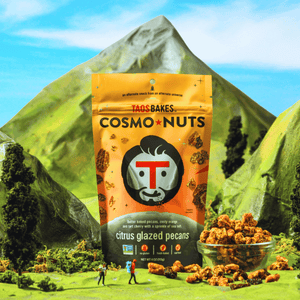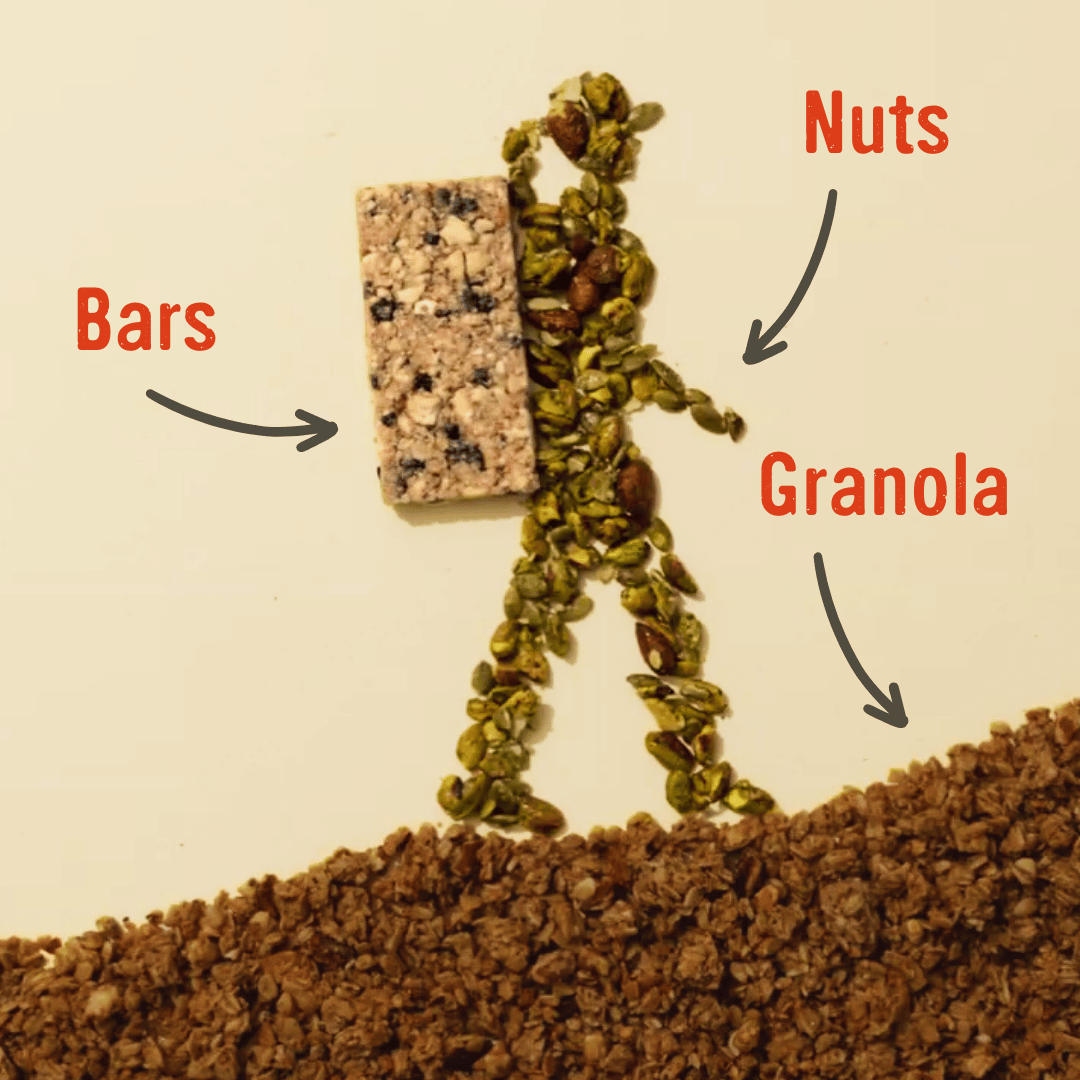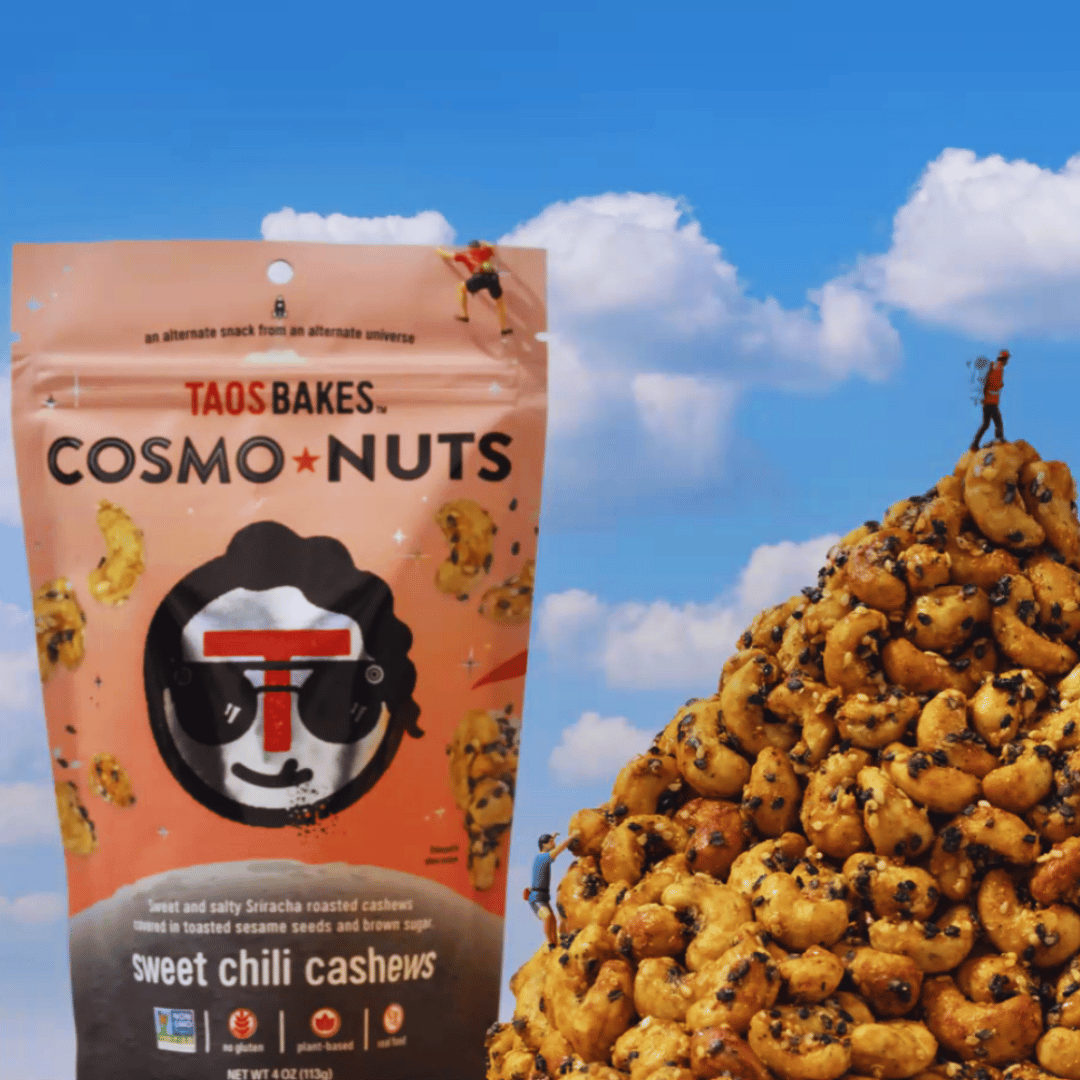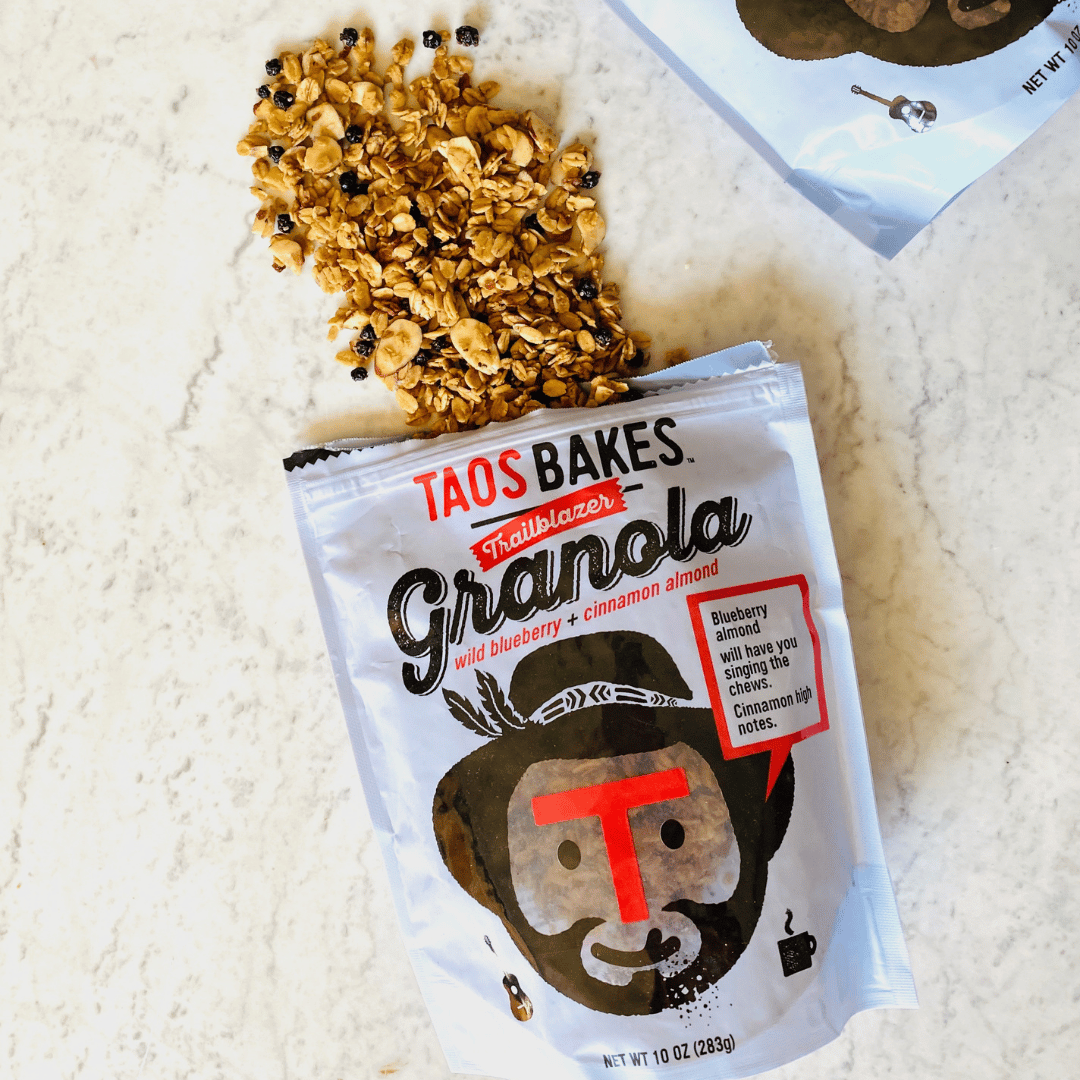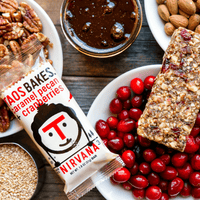Stress-smart habits work best with clean fuel. Taos Bakes packs real nuts, seeds, oats, and organic sweeteners into small-batch bars, granola, and CosmoNuts for steady energy and calm focus without the crash. Grab one before breathwork, after yoga, or between meetings and you are ready to learn which adaptogens fit your routine.
In our fast-paced world, stress has become a constant companion, one that can erode mental clarity, drain energy, disturb sleep, and disrupt resilience. But what if certain plants and mushrooms could help your body adapt more gracefully to stressors, calming the overactive alarms while fortifying your systems against burnout? That is the promise of adaptogens: botanical allies long used in traditional systems of medicine and now undergoing serious scientific inquiry.

For people who already value longevity, cellular health, and smart supplementation, adaptogens can be a powerful complement (not a substitute) to a well-designed lifestyle. In this post, we will explore how adaptogens work, review what evidence supports them, discuss safety and limitations, and give you practical tips for integrating them sensibly into your life.
What Are Adaptogens?
The term "adaptogen" was coined in the mid-20th century, notably in Soviet research, to describe plant substances that could help the body resist stressors in a non-specific way and promote a return to balance (homeostasis). Early definitions required that adaptogens be:
-
Nontoxic at normal doses
-
Capable of enhancing resistance to a variety of stressors (physical, environmental, emotional)
-
Able to help restore or maintain equilibrium in stressed systems
Over time, the concept evolved. Modern reviews describe adaptogens as natural agents, usually plant-based, that support resilience, buffer stress responses, and modulate systemic functions in a context-dependent way. Because stress can mean many things, psychological, metabolic, inflammatory, oxidative, adaptogens are often described as multi-target or pleiotropic agents.
That said, the label "adaptogen" is broad, and not every herb marketed as one truly meets rigorous criteria. The adaptogenic concept remains somewhat controversial in conventional pharmacology.
How Might Adaptogens Work?
Although adaptogens do not follow the "one drug, one target" model, accumulating mechanistic studies suggest several overlapping pathways through which they may mitigate stress. Key mechanisms include:
1. Modulation of the HPA Axis and Cortisol
The hypothalamic-pituitary-adrenal (HPA) axis is central to the body's stress response. Adaptogens are believed to gently regulate upstream signaling in this axis, helping dampen excessive activation or stabilize cortisol fluctuations.
2. Induction of Molecular Chaperones (Heat Shock Proteins)
Some adaptogens trigger a mild "stress mimetic" signal that upregulates heat shock proteins, especially HSP70/HSP72, which help protect proteins, maintain cellular proteostasis, and buffer damage under stress. In animal and cell models, this may translate to greater tolerance to subsequent insults.
3. Antioxidant, Anti-inflammatory and Neuroprotective Actions
Chronic stress often incites oxidative damage and neuroinflammation. Several adaptogens have been shown to modulate inflammatory signaling such as NF-kB and cytokines and support antioxidant defenses in neural and peripheral tissues.
4. Cross-talk with Cellular Signaling and Metabolic Pathways
Beyond chaperones, adaptogens appear to affect pathways like JNK signaling, nitric oxide regulation, glucocorticoid receptor interaction, mitochondrial resilience, and intracellular redox balance. In essence, they may rebalance multiple nodes that stress tends to destabilize.
Because adaptogens act as mild stress mimetics, they aim to elicit adaptation rather than suppression. In other words, they may prime resilience rather than blunt stress entirely.
What Does the Scientific Evidence Say?
Scientific interest in adaptogens has grown, but the human clinical evidence is modest and uneven. Here is a breakdown of what we know, with an emphasis on the adaptogens best studied to date.
Rhodiola Rosea
Rhodiola is perhaps the adaptogen with the strongest evidence for stress, fatigue, and cognitive boost.
-
Reviews highlight trials using standardized Rhodiola extracts, which showed improvements in attention, mental performance, and reduced fatigue in people with mild stress or chronic fatigue syndrome.
-
In mechanistic animal studies, Rhodiola and Schisandra extracts were found to inhibit stress-induced activation of the p-JNK/SAPK pathway, reduce cortisol and nitric oxide surges under restraint stress, and preserve performance under load.
-
Systematic reviews and meta-analyses have started to appear. A recent analysis of adaptogens and cortisol reported some small beneficial effects, though with high variability between studies.
Overall, Rhodiola shows promise, especially in low-to-moderately stressed populations, but variability in dosage, extract standardization, and study quality remains a challenge.
Schisandra Chinensis and Eleutherococcus (Siberian Ginseng / Eleuthero)
These plants are often studied in combination, such as ADAPT-232 (Rhodiola + Schisandra + Eleuthero), in stress and anti-fatigue research.
-
In rodents, ADAPT-232 increased endurance in swimming tests and maintained higher HSP72 levels compared to controls.
-
Clinical trials in mildly fatigued individuals suggest modest gains in endurance and subjective vitality.
-
However, the quality of many studies is limited by small sample sizes, short durations, and variable controls.
Other Adaptogens: Ashwagandha, Ginseng, Holy Basil, Mushrooms
-
Ashwagandha (Withania somnifera) is widely used for anxiety, stress, and sleep. Some small trials suggest reductions in perceived stress, cortisol, and improved sleep.
-
Panax ginseng (Asian ginseng) and American ginseng have been studied for fatigue, cognition, and immune effects, with mixed outcomes.
-
Holy basil (Tulsi), Bacopa, Cordyceps, Reishi, Lion's Mane, and other adaptogenic fungi or herbs are often included in blends. Their individual evidence for stress resilience is weaker or still emerging.
What the Evidence Suggests
-
Adaptogens may offer modest benefit in people experiencing mild to moderate stress, fatigue, or cognitive strain, not in extreme pathological states.
-
Benefits are more likely when the adaptogen is standardized and used at sufficient dosage in a sustained manner.
-
Adaptogen blends may display synergistic interactions that are not apparent when components are used alone.
-
Study variability is a major barrier. Different extracts, doses, durations, populations, and outcomes make synthesis difficult.
In short, adaptogens hold promise, but they should be considered tools within a broader resilience strategy, not miracle cures.
When and Why Adaptogens Might Help You
Adaptogens may be particularly useful in these contexts:
-
Chronic low-level stress or emotional fatigue when you feel worn but not ill
-
Periods of increased cognitive or physical demand, such as sustained work, travel, or training cycles
-
Transitions, recovery phases, or burnout prevention
-
Complementing lifestyle changes
However, adaptogens offer the best value when you have the baseline infrastructure in place: good sleep, consistent circadian rhythm, nutrient sufficiency, and stress-management practices. They are not a substitute for addressing root causes of stress.
Risks, Interactions, and Caveats
Before adding any adaptogen to your routine, be mindful of the following:
Regulatory Status and Quality Control
Adaptogens are sold as dietary supplements in many markets, meaning they are not regulated like drugs. Product purity, accurate labeling, adulterants, and batch variability are concerns. Look for suppliers who use GMP certification, third-party testing, and standardized extracts.
Dosing, Timing, and Duration
Because adaptogens may exhibit biphasic dose-response effects (too low is ineffective, too high may blunt adaptation), dosing matters. Using adaptogens continuously without breaks may lead to tolerance or diminished benefit. Many practitioners recommend cycling them.
Personal Health Conditions and Contraindications
-
People with autoimmune disease, thyroid disorders, hormone-sensitive cancers, bipolar disorder, or organ dysfunction should use caution.
-
Those on prescription medications may risk interactions.
-
Some adaptogens affect blood pressure, blood sugar, or hormone levels, which could be problematic in hypertension, diabetes, or endocrine conditions.
-
Pregnancy, lactation, children, and people with severe conditions should avoid or seek professional guidance.
Over-reliance and Placebo Effects
Because many benefits reported are subjective, placebo effects are relevant. Some critics argue that adaptogens may simply blunt stress signals in a way that interferes with physiological adaptation.
Long-Term Safety Unknown
Robust long-term human safety trials are scarce. Extended use beyond a few months should be approached cautiously, monitored, and ideally rotated.
Not a Replacement for Lifestyle
Adaptogens are supplements, not panaceas. Ignoring diet, sleep, movement, and psychological stressors while banking on an adaptogen is a recipe for disappointment.
Practical Tips for Safely Integrating Adaptogens
-
Start slow with a single-ingredient. Use a low-to-moderate dose and monitor how you feel over 3 to 4 weeks.
-
Choose standardized, high-quality extracts. Look for third-party testing and reputable manufacturers.
-
Cycle adaptogens. Use for 4 to 8 weeks, then take a break.
-
Match timing to effects. Use stimulating ones like Rhodiola earlier in the day, and calming ones like holy basil in the evening.
-
Track outcomes. Monitor sleep quality, mood, energy, or even heart rate variability.
-
Use adaptogens during periods of stress, not as an everyday crutch.
-
Pair them with foundational supports like nutrition, sleep, movement, and stress practices.
-
Reevaluate after each cycle.
Sample Adaptogens You Might Try

|
Adaptogen |
Common Uses / Strengths |
Notes and Cautions |
|---|---|---|
|
Rhodiola rosea |
Fatigue, mental clarity, resilience |
Standardized extract recommended, may be stimulating |
|
Ashwagandha |
Anxiety, sleep, hormone support |
May affect thyroid, cortisol, testosterone |
|
Schisandra chinensis |
Focus, endurance, liver support |
Often used in blends, possible estrogenic effects |
|
Eleuthero |
General fatigue, immune support |
Milder, less potent than Panax ginseng |
|
Panax ginseng |
Energy, cognition, immune resilience |
May raise blood pressure or interact with stimulants |
|
Holy Basil (Tulsi) |
Calm, mood resilience |
May influence thyroid and fertility |
|
Cordyceps, Reishi, Lion's Mane |
Immune, mitochondrial support, cognition |
Effects subtle, often used in synergy |
Adaptogens, when chosen well, can complement a longevity stack by supporting neuroendocrine balance, reducing chronic low-grade stress, and preserving resilience.
Because adaptogens act broadly rather than on a single pathway, they may integrate well with a well-balanced, organic diet and exercise program, which already cover antioxidant support, mitochondrial cofactors, adaptive stress and cellular maintenance. In effect, adaptogens can add a stress buffer layer to your baseline regimen.
Final Thoughts
Adaptogens are compelling tools, botanical allies that aim to help your body self-regulate and respond more gracefully to stress. The mechanistic groundwork is promising, clinical human evidence is suggestive, especially for Rhodiola and some blends, though far from conclusive.
Used judiciously, adaptogens can be potent allies in your resilience toolkit, but they are not magic bullets. Prioritize quality, start conservatively, cycle your use, monitor outcomes, and always pair them with foundational pillars: sleep, nutrition, circadian rhythm, movement, breathwork, and mindset.
As you explore this realm, remember: adaptation is a process, not an endpoint. Thoughtful, evidence-minded integration of adaptogens may help you stay centered, clear, and robust in the face of life's demands.
This information is for educational purposes only.
Put your resilience plan into action with snacks that keep pace. Stock up at taosbakes.com and keep non-GMO, gluten-free Taos Bakes within reach so your adaptogen stack, sleep, and movement get backed by delicious, real-food power every single day.
